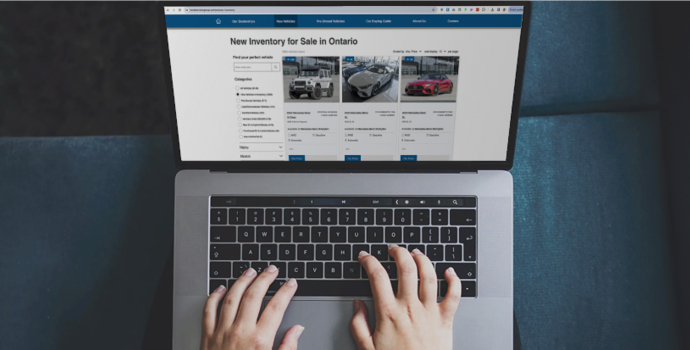Ownership
- Lease: You don’t own the car; you pay to use it for a fixed period. At the end of the term, you either return it or buy it.
- Finance: You own the vehicle and get to keep it, use it how you want, for as long as you want, and add any customizations or modifications you want.
Down Payments
- Lease: Usually includes the first month’s payment, a refundable security deposit, a down payment, taxes, registration fees, and possibly other fees.
- Finance: Usually include the cash price or a down payment, taxes, registration fees, and possibly some other fees.
Useful Tip!
You can get a longer-term loan to reduce your monthly payments, but you might be paying more in fees and interest over the long run and could wind up with negative equity on the vehicle.
Monthly Payments
- Lease: The vast majority of the time, lease payments will be lower than loan (financing) payments because you only pay for the depreciation of the vehicle during the time of the lease, plus interest, rent charges, taxes, and fees.
- Finance: Loan payments are usually higher than leasing because you’re paying for the car's entire value.
Early Termination
- Lease: If you want to end the lease early, you will have to pay early termination fees, which usually can cost as much as sticking with the rest of the lease’s term.
- Finance: You can sell or trade in your vehicle whenever you want, and the money you make selling it can be used towards paying off the loan.
Vehicle Return
- Lease: At the end of the lease’s term, you can choose to return the vehicle and walk away after paying any end-of-lease charges.
- Finance: You are responsible for selling or trading in the vehicle whenever you want, should you decide you want to buy another one.
Useful Tip!
If you’re choosing between two or more models and want to know how much they’ll depreciate, you can use Canadian Black Book’s Future Value calculator. Input details of the vehicle and its usage, and it will show you an estimate of its resale value over a 5-year period.
Depreciation
- Lease: Future value of the car does not affect you as the leaser, but you also do not get anyequity from the car.
- Finance: The vehicle will depreciate in value, but the equity is yours to use.
Customizing
- Lease: Most of the time, the person/business leasing you the car will want it to be in optimal conditions to resell, in case you choose not to buy it yourself once the lease is up. As a result, you will have to remove all modifications or customizations by the end of the lease and pay for any damages or permanent alterations caused.
- Finance: You own the car, so you can do whatever you want with the awareness that it will affect the resale value.
Wear & Tear
- Lease: If your car undergoes excessive wear and tear, most leases will require you to pay penalty fees to fix them.
- Finance: The only worry for someone with a car loan/financing is how it will affect the resale value.
Useful Tip!
How and how much you use your vehicle in a year will help determine whether getting a lease or a loan is better. If you live in Toronto and want to use it occasionally for short drives, you don’t have to worry about the distance restriction. But if you live in the suburbs or more rural areas and use it all the time, it might be better to take out a loan and avoid any distance penalties.
Distance Restrictions
- Lease: Most leases will require you to negotiate an annual limit on how much you can drive the car, and you will incur extra charges if you go over that limit.
- Finance: You can drive as often and as far as you want, with the awareness that more kilometres will lower its resale value.
Summary
Ultimately, whether you want to lease or finance your car depends on your long-term intentions. If you’re the type of person that likes to have new cars every few years, then leasing makes much more sense financially. However, if you intend to buy a car and use it until it dies, taking out a loan is your better option. In between, it all depends on the level of financial commitment and ownership you prefer to have of your car.
You might also be interested in these guides:
How Lease Payments Are Calculated?
Buying a New Car In Ontario?
Buying a Used Car in Ontario?
Buying a Used Car vs a New Car?
How to Get Get Out of a Car Lease Early in Ontario?







